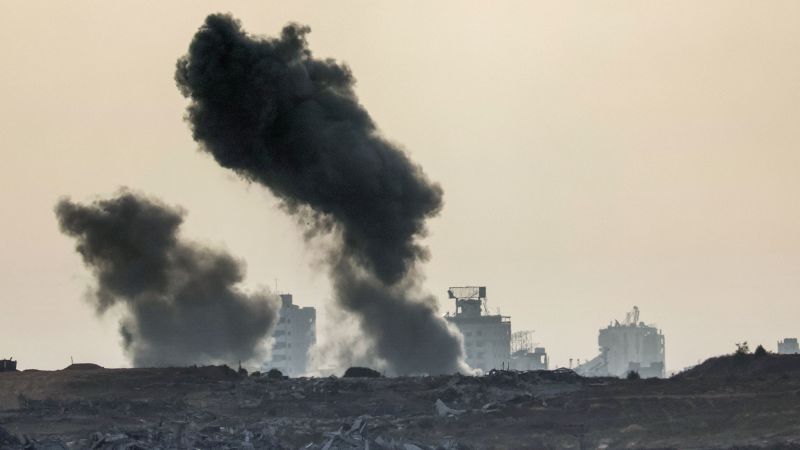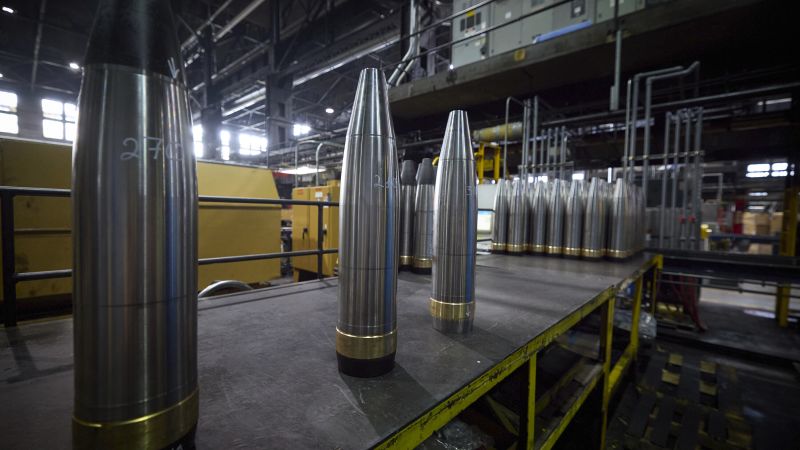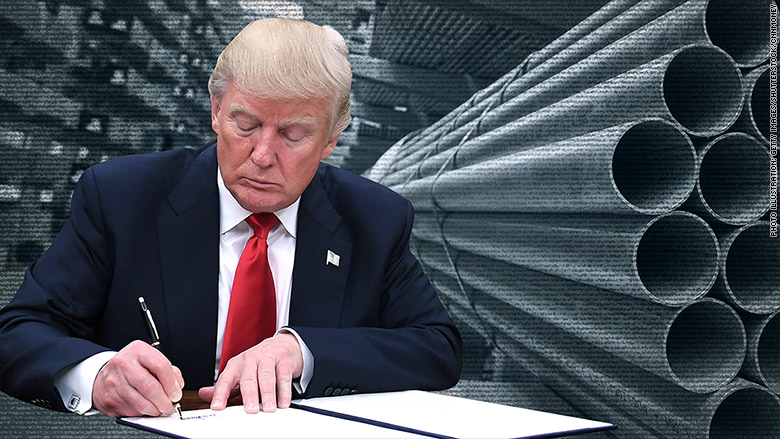S&P 500 Rises on New U.S.-Vietnam Trade Deal, but Job Data and Tariff Disputes Cause Uncertainty
#s&p_500 #u.s.-vietnam_trade_deal #job_data #tariff_disputes #trade_war

Introduction
The S&P 500 saw a boost on Wednesday after President Donald Trump announced a new U.S.-Vietnam trade deal. This news came as a relief for investors, who have been closely monitoring the ongoing trade war between the United States and China. However, the gains were limited due to the release of weak jobs data, causing some uncertainty in the market.
Background
Similar to Trump's trade policies with China, the administration has also been implementing tariffs on other countries. In a recent decision, a federal appeals court granted the Trump administration's request to keep the president's far-reaching tariffs in place, while expediting the consideration of the case. This has caused some uncertainty and volatility in the market, as businesses try to understand the impact of these tariffs on their operations.
Current Scenario
With the new U.S.-Vietnam trade deal, Nippon Steel has also received a conditional green light from President Trump to take control of U.S. Steel. This partnership is expected to bring a boost to the steel industry, but there are still key details that need to be ironed out. Meanwhile, the ongoing tariff disputes have also raised concerns about the impact on jobs. Ontario Premier Doug Ford has expressed his opposition to the new tariffs, calling it an "economic war" against Canadian businesses.
In addition to the trade deals, Trump's visit to the Middle East has also sparked some controversy. While he has been met with elaborate ceremonies and announced new policies, he has also faced criticism for rejecting America's "interventionist" past in the region. This has raised concerns about the potential impact on the political stability in the Middle East.
Conclusion
The S&P 500's rise after the announcement of the U.S.-Vietnam trade deal is a positive sign for the market. However, the limited gains due to weak jobs data and ongoing tariff disputes highlight the importance of monitoring the trade war and its impact on the economy. As Trump's Middle East tour comes to an end, it remains to be seen how his decisions and policies will shape the region's future. Investors will need to closely follow any developments and carefully consider their investments in light of the current economic and political climate.
About the People Mentioned
Donald Trump
Donald John Trump, born June 14, 1946, in Queens, New York, is an American businessman, media personality, and politician. He graduated from the University of Pennsylvania’s Wharton School in 1968 with a degree in economics. In 1971, he took over his family’s real estate business, renaming it the Trump Organization, through which he expanded into building and managing skyscrapers, hotels, casinos, and golf courses. Trump gained widespread fame as the host of the reality TV show *The Apprentice* from 2004 to 2015, which helped establish his public persona as a successful entrepreneur. Trump entered politics as a Republican and was elected the 45th president of the United States, serving from 2017 to 2021. His presidency was marked by significant policy actions including tax cuts, deregulation, the appointment of three Supreme Court justices, renegotiation of trade agreements (notably replacing NAFTA with the USMCA), and a focus on immigration control including border wall expansion. He withdrew the U.S. from international agreements such as the Paris Climate Accord and the Iran nuclear deal, and engaged in a trade war with China. His administration’s response to the COVID-19 pandemic was criticized for downplaying the virus’s severity. Trump was impeached twice by the House of Representatives—first in 2019 for abuse of power and obstruction, and again in 2021 for incitement of insurrection—but was acquitted by the Senate both times. After losing the 2020 election to Joe Biden, Trump challenged the results, culminating in the January 6, 2021, Capitol riot. He remains a central figure in American politics, having won the 2024 presidential election and returned as the 47th president in 2025, continuing to promote policies aimed at economic growth, border security, and military strength[1][2][3][4].
Doug Ford
Douglas Robert Ford Jr., born November 20, 1964, is a Canadian politician and businessman currently serving as the 26th Premier of Ontario and leader of the Progressive Conservative Party of Ontario[1][2][4]. He represents the riding of Etobicoke North in the Legislative Assembly of Ontario, a community in Toronto where he was raised and continues to live with his family[2][6]. Ford comes from a family with a strong tradition of public service: his father, Doug Ford Sr., was a Member of Provincial Parliament (1995–1999), and his brother, Rob Ford, served as mayor of Toronto (2010–2014)[2][6]. Before entering provincial politics, Doug Ford was a Toronto city councillor for Ward 2 Etobicoke North from 2010 to 2014, serving as vice-chair of the Budget Committee and delivering significant taxpayer savings[6]. He also ran for mayor of Toronto in 2014, finishing second[2]. In business, Ford co-owns Deco Labels and Tags, a printing company founded by his father[2]. Ford became leader of the Progressive Conservative Party of Ontario in 2018 after a closely contested leadership race[4]. He led the party to a majority government in the June 2018 provincial election, becoming premier on June 29, 2018[1][3][5]. Ford was re-elected with increased majorities in both the 2022 and 2025 elections, the latter called early in response to U.S. trade policies[1][3]. His third consecutive majority in 2025 marked the first time in 65 years an Ontario premier achieved this feat[1]. As premier, Ford has pursued a mix of conservative and centrist policies. He eliminated Ontario’s carbon pricing program, though the federal government later imposed a carbon tax on the province[1]. His government has focused on increasing housing, expanding infrastructure, and hiring more health care workers, while also enacting legislation to expand the use of private health care services and grant additional powers to some mayors[1][2]. Ford’s tenure has not been without controversy, including debates over pandemic response, changes to Toronto City Council, and the Greenbelt development scandal[2]. Recently, Ford has been prominent in opposing proposed U.S. tariffs on Canadian goods, warning of potential job losses and advocating for a stronger Canada-U.S. energy alliance[1]. During the 2025 election, he countered U.S. political rhetoric with the slogan “Canada is not for sale” and terminated a contract with Starlink, a company linked to a U.S. political figure[1]. Ford remains a significant figure in Canadian politics, balancing provincial interests with national and international economic challenges[1][2].
About the Organizations Mentioned
Nippon Steel
Nippon Steel Corporation is a leading global steel producer, founded in 1970 through the merger of Yawata Iron & Steel Co., Ltd., and Fuji Iron & Steel Co., Ltd.[1][2]. The company's history traces back to 1901 with the establishment of Yawata Steel Works, which was a pivotal moment in Japan's industrial development[6]. In 1934, the Japanese government consolidated several steelmakers into Japan Iron & Steel Co., Ltd., which later dissolved into private entities, including Yawata and Fuji, following World War II[1][6]. Nippon Steel has achieved significant milestones, including becoming the world's largest steelmaker by the mid-1970s[5]. The company expanded globally, diversifying into specialty steels and other materials to adapt to changing market demands[5]. In recent years, Nippon Steel has continued to evolve, announcing a goal to achieve carbon neutrality by 2050[4]. Today, Nippon Steel operates with a production capacity exceeding 40 million metric tons of crude steel annually, reporting revenues of approximately 6.1 trillion JPY (around 55 billion USD) in FY 2022[4]. The company is known for its advanced production facilities and commitment to environmental sustainability[5]. Notably, Nippon Steel has been at the forefront of technological advancements in the steel industry, focusing on innovation and strategic partnerships to maintain its position as a global leader[6]. As a major player in the steel industry, Nippon Steel continues to navigate challenges such as competition from emerging markets and the need for sustainable practices. Its strategic expansions and commitment to technological innovation underscore its position as a key player in the global steel market.
U.S. Steel
## Overview U.S. Steel, officially the United States Steel Corporation, is one of America’s most storied industrial companies. Headquartered in Pittsburgh, Pennsylvania, it is a major producer of steel products—including flat-rolled and tubular goods—for industries such as automotive, construction, electrical, industrial equipment, distribution, and energy[3]. The company’s operations span the U.S. and Central Europe and include not only steelmaking but also iron ore and coke production, reflecting a fully integrated supply chain[3]. ## History Founded in 1901 by the merger of several leading steel companies, U.S. Steel quickly became a symbol of American industrial might. The company’s early dominance was such that it was once the world’s largest corporation by market capitalization. Over the decades, U.S. Steel underwent significant restructuring, including a 1986 rebranding as USX Corporation and a 2001 return to its original name after spinning off its energy assets[3]. Despite global competition and industry consolidation, U.S. Steel has remained a key player, ranking as the second-largest steel producer in the U.S. as of 2022, though its global standing has declined over time[3]. ## Key Achievements U.S. Steel has long been at the forefront of technological innovation in steelmaking. Its recent “Best for All” strategy emphasizes both integrated and mini mill (electric arc furnace) technologies, aiming to produce next-generation, lower-carbon steels such as verdeX®, which uses up to 90% recycled content and boasts a carbon footprint up to 75% lower than traditional methods[1]. The company has also set ambitious sustainability goals, targeting net-zero carbon emissions by 2050 and a 20% reduction in greenhouse gas intensity by 2030[3]. In recognition of its corporate responsibility efforts, U.S. Steel received the Equality 100 Award from the Human Rights Campaign Foundation in 2025[3]. ## Current Status
















